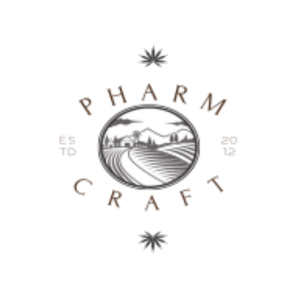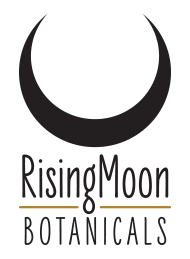News
Magic Mushrooms and Altered States: Understanding Brain Connectivity
In recent years, scientific interest in the effects of magic mushrooms, also known as psilocybin-containing mushrooms, has experienced a resurgence. These fungi have been used for centuries in various cultural and spiritual practices, but their complex effects on the brain have only started to be unraveled through modern research. One of the most intriguing aspects of the magic mushroom experience is its ability to induce altered states of consciousness. In this magazine-style blog, we delve into the fascinating world of magic mushrooms and their impact on brain connectivity. Through the lens of neuroscience, we explore how psilocybin affects the brain’s networks, leading to altered states of perception, cognition, and emotion. As research in this area continues to evolve, understanding the intricate brain connectivity during magic mushroom experiences offers insights into the profound nature of human consciousness.
The Brain’s Default Mode Network (DMN)

The Brain’s Default Mode Network (DMN) plays a crucial role in shaping our conscious experience during moments of rest and introspection. Comprised of interconnected brain regions, the DMN facilitates self-referential thoughts, daydreaming, and autobiographical memory processing. It is often associated with the sense of self and our internal narrative. When individuals consume psilocybin, the active compound in magic mushrooms, the DMN undergoes significant changes. Studies using brain imaging techniques, such as fMRI, have demonstrated that psilocybin leads to a temporary reduction in DMN activity. This reduction is believed to be a key factor in the profoundly altered states of consciousness experienced during a magic mushroom journey. By quieting the DMN, psilocybin induces a state of ego dissolution, where the boundaries between oneself and the external world become blurred. This sense of unity and interconnectedness can lead to profound spiritual or mystical experiences. Understanding the role of the DMN in shaping our consciousness and how psilocybin interacts with it offers valuable insights into the mechanisms underlying the transformative effects of magic mushrooms on the human mind. As research in this area continues, we gain a deeper appreciation for the complexity of the brain and the potential of psychedelic substances to provide unique perspectives on our sense of self and the nature of reality.
The Brain’s Connectivity Patterns

Psilocybin, the active compound in magic mushrooms, exerts its profound effects on the brain by interacting with specific serotonin receptors, notably the 5-HT2A receptors. Upon ingestion, psilocybin is converted into psilocin, which binds to these receptors, leading to altered neural activity and communication between brain regions. Functional Magnetic Resonance Imaging (fMRI) studies have provided valuable insights into the changes in brain connectivity induced by psilocybin. During a magic mushroom experience, fMRI scans have revealed increased communication between brain regions that do not typically interact under normal conditions. This phenomenon, often referred to as “functional connectivity,” allows distant regions of the brain to establish new connections, creating novel pathways for information exchange. These altered connectivity patterns during the magic mushroom experience may explain various aspects of the psychedelic effects, including changes in perception, cognition, and emotional states.
The brain’s communication pathways are highly intricate, with different regions specialized in specific functions and networks. Under the influence of psilocybin, the brain’s usual patterns of connectivity appear to undergo a temporary reconfiguration. For example, the default mode network (DMN), associated with introspection and self-referential thoughts, exhibits decreased activity, leading to the dissolution of the ego and a sense of interconnectedness with the environment. On the other hand, other brain networks, such as the visual and sensory networks, experience heightened connectivity, potentially giving rise to vivid visual hallucinations and synesthetic experiences.
These altered connectivity patterns during the magic mushroom experience may hold significant implications for understanding the brain’s plasticity and the mechanisms underlying consciousness. By promoting increased communication between brain regions, psilocybin might facilitate novel associations and creative thought processes. This heightened brain connectivity could also be involved in the therapeutic potential of magic mushrooms, as it may offer new avenues for addressing mental health conditions and emotional healing.
As we continue to explore the complex relationship between psilocybin and brain connectivity, ethical and well-controlled research is essential to fully grasp the therapeutic benefits and potential risks associated with the magic mushroom experience. Understanding the intricacies of altered brain connectivity can pave the way for innovative therapeutic approaches while respecting the profound and transformative nature of the psychedelic experience. With responsible research and scientific exploration, we can unlock the mysteries of psilocybin’s effects on brain connectivity and unlock new insights into human consciousness.
Cross-Modal Connectivity
During a magic mushroom experience, some individuals may encounter the intriguing phenomenon of synesthesia, where sensory experiences become intertwined, leading to the stimulation of multiple senses simultaneously. For example, a person might perceive colors when listening to music or associate specific tastes with certain sounds. This synesthetic experience is thought to arise from the altered brain connectivity induced by psilocybin, the active compound in magic mushrooms. Psilocybin interacts with serotonin receptors in the brain, particularly the 5-HT2A receptors, leading to changes in neural activity and communication between different brain regions. As these connections between brain regions become more flexible and fluid, the brain’s usual boundaries between sensory experiences can blur, resulting in synesthetic perceptions. The occurrence of synesthesia during the psychedelic experience offers a fascinating glimpse into the brain’s plasticity and the potential for cross-modal connectivity. Understanding this aspect of the magic mushroom experience may provide valuable insights into how the brain integrates and processes sensory information, shedding light on the complexities of human perception and consciousness. As research in this area continues to advance, the study of synesthesia during magic mushroom experiences holds promise in uncovering the brain’s remarkable adaptability and the profound effects of psychedelic substances on human cognition and sensory perception.
The Role of Emotional Connectivity and Healing

In recent years, magic mushrooms, specifically their active ingredient psilocybin, have garnered attention for their potential therapeutic benefits in mental health treatment. The altered brain connectivity induced by psilocybin may hold the key to understanding how these mushrooms can facilitate emotional healing. In therapeutic settings, individuals suffering from conditions like depression, anxiety, and post-traumatic stress disorder (PTSD) have reported significant improvements in their emotional well-being after psilocybin-assisted sessions.
Psilocybin’s effects on emotional connectivity stem from its ability to disrupt rigid neural pathways in the brain. In conditions like depression and anxiety, individuals may find themselves trapped in negative thought patterns and emotional loops. These patterns can contribute to a sense of hopelessness and difficulty in managing emotions. Psilocybin, by temporarily inhibiting the brain’s Default Mode Network (DMN), may interrupt these harmful patterns, allowing individuals to gain a fresh perspective on their emotions.
During a psilocybin experience, emotional connectivity is enhanced, allowing individuals to explore and process deep-seated emotions in a safe and supportive environment. This heightened emotional connectivity can lead to increased emotional flexibility, allowing individuals to navigate their feelings with greater ease and openness. By breaking down emotional barriers and rigid thought patterns, psilocybin-assisted therapy offers a unique opportunity for psychological growth and healing.
In therapeutic contexts, trained professionals work closely with individuals throughout the psilocybin session to provide guidance and support. The enhanced emotional connectivity allows individuals to delve into the root causes of their emotional distress and gain insights into their feelings and experiences. As a result, individuals may experience a sense of catharsis and emotional release, helping them process unresolved trauma and emotional pain.
It is essential to note that psilocybin-assisted therapy is not a standalone treatment but rather a tool used in conjunction with therapeutic support. The emotional experiences and insights gained during the session are carefully integrated and processed in subsequent therapy sessions, ensuring the therapeutic benefits are maximized and sustained over time.
As the field of psychedelic research expands, the potential of magic mushrooms in promoting emotional healing and mental well-being becomes increasingly promising. However, it is crucial to approach psilocybin-assisted therapy with caution and under the guidance of trained professionals in a controlled and supportive environment. Responsible research and ethical practices will be critical in harnessing the power of emotional connectivity and healing offered by magic mushrooms, paving the way for innovative and effective mental health treatments.
Expanding Consciousness
The study of magic mushrooms and their impact on brain connectivity opens the door to a deeper understanding of human consciousness and the brain’s plasticity. As neuroscience and psychedelic research continue to converge, we gain valuable insights into how psilocybin-induced altered states influence perception, cognition, and emotion. Understanding brain connectivity during the magic mushroom experience may pave the way for innovative therapeutic approaches and expand our understanding of consciousness itself. As we navigate this exciting frontier of science, responsible and ethical research promises to shed light on the full potential of magic mushrooms and their profound effects on the human brain.
- Making edibles taste like Delicacies, Not Cannabis - 9 May 2024
- Unlocking the Secret: Cannabis Without Munchies - 7 May 2024
- cbd versus cbg: Decoding the Differences and Similarities - 6 May 2024



























